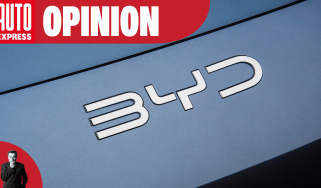Fitment
Drivers are faced with a huge choice when fitting new tyres
When you last bought tyres for your car, how much thought didyou put into the process? Not very much is the most likely answer. The trouble is, rubber is usually replaced in an emergency– you’ve had a puncture or noticed a bald patch, and want the jobdone quickly and conveniently.
However, tyres are vital safety aids – they provide the only contact your car has with the road – so making a mistake can be lethal. But with more than 280 brands, and a huge choice of fitters, where do you start? First up, you need to know your sizes. All the details you need are on the sidewall.
The best option is usually to go for the same type your car was supplied with – vehicle and tyre manufacturers work together on the fitments for individual models, tuning both rubber and suspension for the best performance. If you do buy a different brand, try to keep the same type and tread pattern across each axle.
Picking a fitter can be tricky, so get recommendations from friends. However, you should be on safe ground if it’s part of the National Tyre Distributors Association (NTDA). Members meet strict standards and will display the ‘Kneeling Man’ logo.
Used - available now

2022 Volkswagen
Passat GTE
26,344 milesAutomaticPetrol1.4L
Cash £18,997
2024 Volkswagen
Golf
32,012 milesManualPetrol1.5L
Cash £18,797
2022 Volkswagen
ID.3
28,561 milesAutomaticElectric
Cash £18,497
2023 Ford
Puma
15,107 milesAutomaticPetrol1.0L
Cash £17,663There are visual clues you can look for as well. If tyres are piled up outside, drive on – rubber can be seriously damaged by the elements.
It’s easier to buy if you’re not in a hurry, so keep an eye on your tread depth. The minimum for cars is 1.6mm, but it is recommended you change at 3mm. A way of gauging this is to place a 5p piece in the tread – if there is a gap between the top of the Queen’s head and the tyre surface, it is less than 3mm. Start hunting for replacements when it reaches this level, and get quotes from high street chains, independent retailers and online.
Always check what’s included in the deal – you’ll need to know if they will be delivered, fitted and balanced as part of the price.
Today, many tyres are asymmetric, with different tread on the inside and outside, while others have patterns designed to work in one direction only. It is vital that these are fitted the right way round. A glance at the sidewall once the rubber is on the car will show if it’s correct. Asymmetrics have the words ‘inside’ and ‘outside’, while directionals carry an arrow.
Make sure the valve is changed at the same time and get the wheels balanced, which is important to ensure even rotation. No matter how precise the manufacture of wheels is, heavy spots do occur and high speeds emphasise the problem. This can stress and overheat the tyres, leading to increased wear.
To even out heavy areas, weights are fitted to the rim. They can be clip-on or stick-on – the latter have the advantage of being easily hidden out of sight inside the back of the rim. We suggest you ask for these, otherwise you may find that the fitter will place them anywhere.
Finally, have the wheel alignment checked. This is vital when replacing unevenly worn front tyres, although you’ll have to pay extra for it.
LOOKING AFTER YOUR TYRESTwo major problems affect the life and effectiveness of tyres – under-inflation and overloading. Putting too much weight in your car increases the strain on the rubber. It can then become distorted, which causes overheating and premature wear.
If you need to carry a heavy load, put a bit more air in the tyres – but don’t forget to return them to normal afterwards. You should test pressures regularly, but do this before a journey rather than halfway through a trip, as warm tyres give a false reading.
Check the rubber’s condition at the same time, remove stonesor objects jammed in the tread, and look out for cuts and uneven wear.
There must be at least 1.6mm of tread depth across the central three-quarters of the tyre, and this needs to be in a continuous band around the entire circumference. If it’s not, you’ll be liable for a fine of up to £2,500, and three penalty points per tyre!
REPAIR OR REPLACE?If you get a puncture, you don’t automatically need to replace therubber – you might be able to have it repaired. Industry body TyreSafe says such fixes are possible, although only under certain circumstances.
Holes caused by a nail can be fixed, but this is only permitted in the central 60 per cent of the tread and not on any part of the sidewall. Also, the hole cannot be more than 6mm in diameter. Repairs should never be carried out on tyres that havebeen damaged in any other way.
The holes will be plugged with a rubber bung, although the tyre must be removed from the wheel first. But be careful you’re not offered a dodgy way round the problem, such as filling holes with liquid sealant or inserting an inner tube into a tubeless tyre.
HOW MUCH?We went hunting for new tyres for a 2005 Vauxhall Astra 1.4, with 195/65H15 rubber. Prices quoted are for a single tyre, including valve and fitting. Spend time online or on the phone, and you can make substantial savings – especially on a full set of four.
Kwik-Fit Cheapest Arrowspeed HP130 £44.50Mid-range Firestone Firehawk 700 £73.50Upmarket Michelin Energy 3a £87.50
Tyrefitdirect.co.uk – mobile service that comes to youCheapest Unspecified budget £57.34Mid-range Firestone Firehawk 700 £59.79Upmarket Michelin Energy 3a £100.26
Vauxhall main dealer Cheapest Aurora £49.73Mid-range Firestone Firehawk 700 £53.03Upmarket Michelin Energy 3a £79.84
Valuetyres.co.uk – delivered to your home for £10.45 per order, free fitting at network UK-wideCheapest Infinity £34.82Mid-range Firestone Firehawk 700 £47.06Upmarket Michelin Energy 3a £64.01Blackcircles.com – delivered free tonationwide network of fitting centresCheapest Fateo AR550 £37.20Mid-range Firestone Firehawk 700 £46.96Upmarket Michelin Energy 3a £61.82
Rapid FitCheapest Enduro Runway £37.35Mid-range Firestone Firehawk 700 £50.51Upmarket Michelin Energy 3a £66.93Micheldever – independent chainCheapest Enduro Runway £39.42Mid-range Firestone Firehawk 700 £50.79Upmarket Michelin Energy 3a £61.69
Independent retailerCheapest Enduro Runway £38.98Mid-range Firestone Firehawk 700 £50.88Upmarket Michelin Energy 3a £69.33






